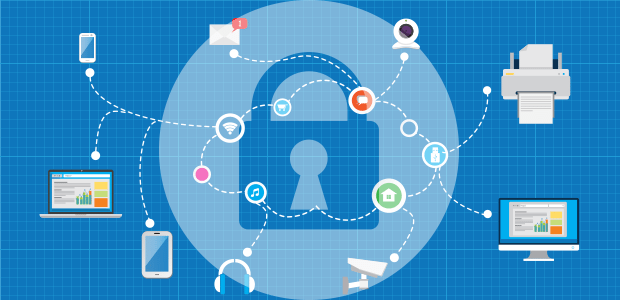DHS Bans Kaspersky Products From Federal Agency Computers
 The Department of Homeland Security on Wednesday ordered all federal executive branch agencies to stop using products provided by the Russian-based cybersecurity firm AO Kaspersky Lab. Acting DHS Secretary Elaine Duke issued the directive, warning of “information security risks” presented by Kaspersky anti-virus products and other software, which “provide broad access to files” and “can be exploited by malicious cyber actors to compromise” federal computer systems, the order said.
The Department of Homeland Security on Wednesday ordered all federal executive branch agencies to stop using products provided by the Russian-based cybersecurity firm AO Kaspersky Lab. Acting DHS Secretary Elaine Duke issued the directive, warning of “information security risks” presented by Kaspersky anti-virus products and other software, which “provide broad access to files” and “can be exploited by malicious cyber actors to compromise” federal computer systems, the order said.
“The Department is concerned about the ties between certain Kaspersky officials and Russian intelligence and other government agencies, and requirements under Russian law that allow Russian intelligence agencies to request or compel assistance from Kaspersky and to intercept communications transiting Russian networks,” DHS said in its order. “The risk that the Russian government, whether acting on its own or in collaboration with Kaspersky, could capitalize on access provided by Kaspersky products to compromise federal information and information systems directly implicates U.S. national security.” (Read More)
Israel’s CYBONET Launches Cyber Security Solution for SMEs
CYBONET, an international information security solutions provider headquartered in Israel, released its newest cyber security solution, Cybowall, a threat detection and response platform engineered for small and medium sized enterprises (SMEs). Combining both affordability and functionality, Cybowall provides organizations with a single security tool that delivers those capabilities necessary to identify and respond not only to active threats, but also to potential vulnerabilities within the network.
 “As smaller businesses struggle to keep up with the emerging threats inundating networks around the world, it is becoming increasingly clear how ill prepared many organizations continue to be,” says CYBONET CEO David Feldman. “In many ways, smaller businesses today are an even more appealing target to cyber criminals than large enterprise networks. There are more of them and there is often less awareness of the threat, little to no technical staff with a security background, and certainly less budget to invest in security technologies.” (Read More)
“As smaller businesses struggle to keep up with the emerging threats inundating networks around the world, it is becoming increasingly clear how ill prepared many organizations continue to be,” says CYBONET CEO David Feldman. “In many ways, smaller businesses today are an even more appealing target to cyber criminals than large enterprise networks. There are more of them and there is often less awareness of the threat, little to no technical staff with a security background, and certainly less budget to invest in security technologies.” (Read More)
Industrial IoT Security: Is Risk Increasing?
 Recently, as more applications get serious about implementing IIoT designs, I get an increasing number of questions from insurance company executives. The most common question: what is the risk in the industrial internet of things?
Recently, as more applications get serious about implementing IIoT designs, I get an increasing number of questions from insurance company executives. The most common question: what is the risk in the industrial internet of things?
Their theme seems to be: Connecting things is just too risky. We don’t understand the security or safety risks, so it can’t be good. I disagree. I do agree that IIoT is a brave new world in general, and for risk management in particular. There are all sorts of new opportunities for attack. The hack that allowed remote control of a Jeep over the internet is a classic example. More concerning industrial cases include the Stuxnet worm that destroyed Iran’s nuclear program, the European grid backdoor installed by malware and the Excel spreadsheet exploit that caused a blackout in Ukraine. (Read More)






